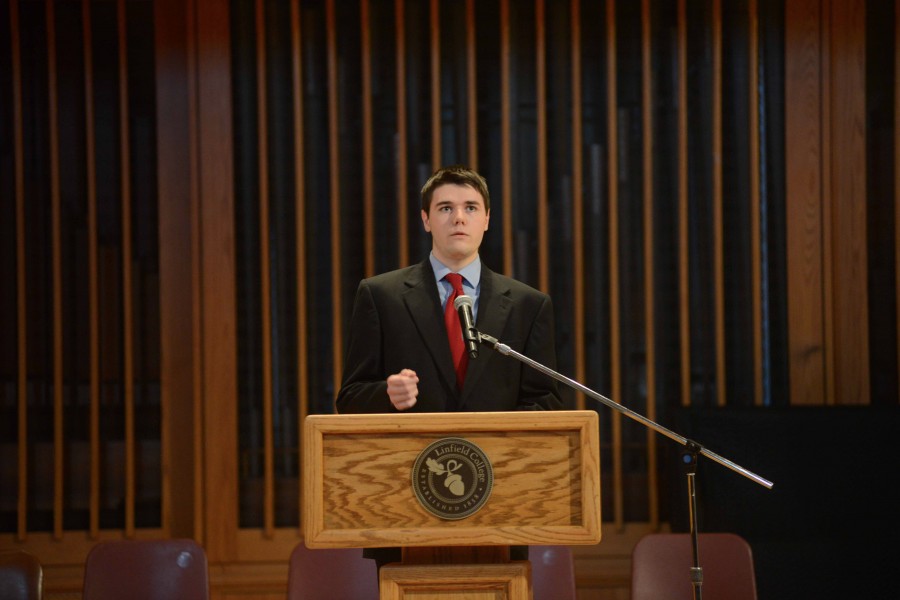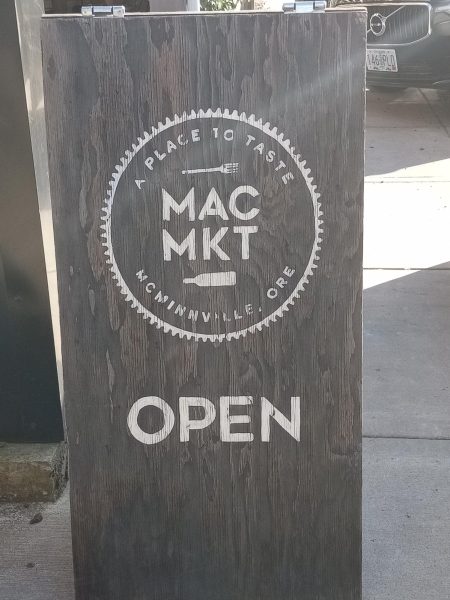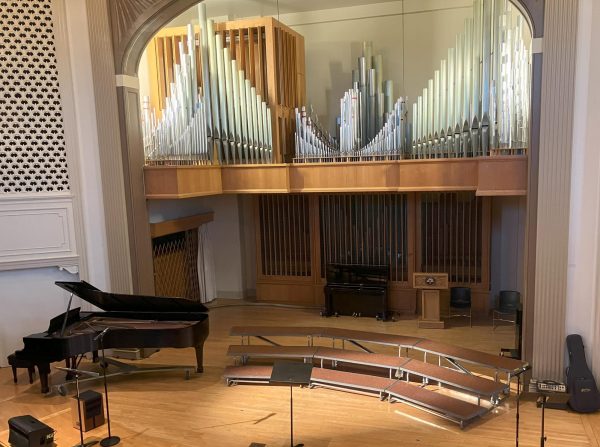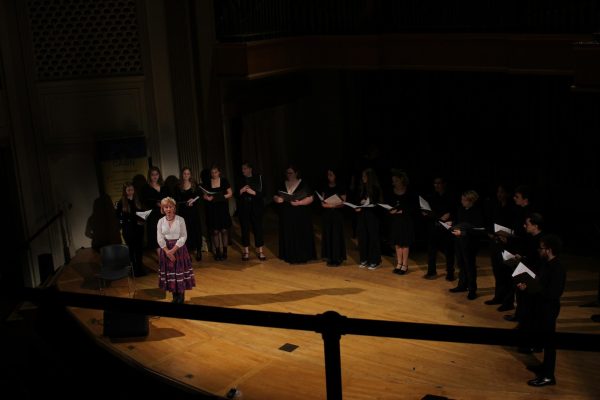Students debate fate of Guantanamo Bay, prisoners
Yucheng Zhang/ Senior Photographer Junior Michael Zier speaks on the topic of Guantanamo Bay’s future. He and freshman Parker Wells won first place at the Frederick Douglas Forum for persuasive speech.
May 13, 2014
There are over 150 people currently held in Guantanamo Bay detention camp and each year, over $1 million is spent to keep Guantanamo open.
The question of whether or not the Guantanamo Bay detention camp should remain open was posed at the 3rd annual Frederic Douglass Debate.
The Guantanamo Bay detention camp is a United States military prison located in Cuba. It was established in 2002 to detain extremely dangerous prisoners, to interrogate the prisoners held there in an optimal setting and to prosecute prisoners of war crimes.
At the Guantanamo Bay detention camp there have been accounts of waterboarding, intimidation, threats to attack loved ones and various torture techniques. As a result of accounts like these, there is a question as to if the camp should remain open due to human rights violations.
Bringing terrorists to justice is said to be the main goal of the detention center. The question of whether or not it should continue to remain open; as well as if it is protecting the United States citizens, if kept open, was the focus of the debate. Both sides to the debate were addressed and presented with poise and passion.
Students were energized to talk about the debate and the topic of closing the detention center. Not only the panelists but the audience participated and posed questions and further arguments in an open forum.
“How can the answer to the seemingly obvious question of whether Guantanamo Bay should be closed, still be relevant in 2014? Guantanamo bay needs to close; its operation goes against U.S. interests, international law and undermines human rights,” junior Erling Overa said during his debate.
The only student that presented the opposing side, to keep Guantanamo open, was freshman Mikayla Frei.
“Guantanamo Bay is still necessary to face the enemy with important resources as well as keep key players from contributing to efforts against the U.S.,” Frei said. “Closing Guantanamo will be a complicated process that will take time which is why it is currently crucial to the American public’s safety to keep Guantanamo open.”
The audience brought up the complications with simply closing the detention camp. Many agreed that the detention center should be closed, but that the process for doing so is complicated.
Obama in 2010 made a promise to close the camp; however, Guantanamo still remains The audience talked about the issue of the camp being created as a result of the expansion of presidential powers. However, the hinge of the issue comes from the presidential powers currently not having the ability to close the detention camp.
“The issue of whether or not it should close is one issue. The issue of how to close it is another,” said senior Joe Gladow.
Kathryn Devore can be reached at [email protected]











